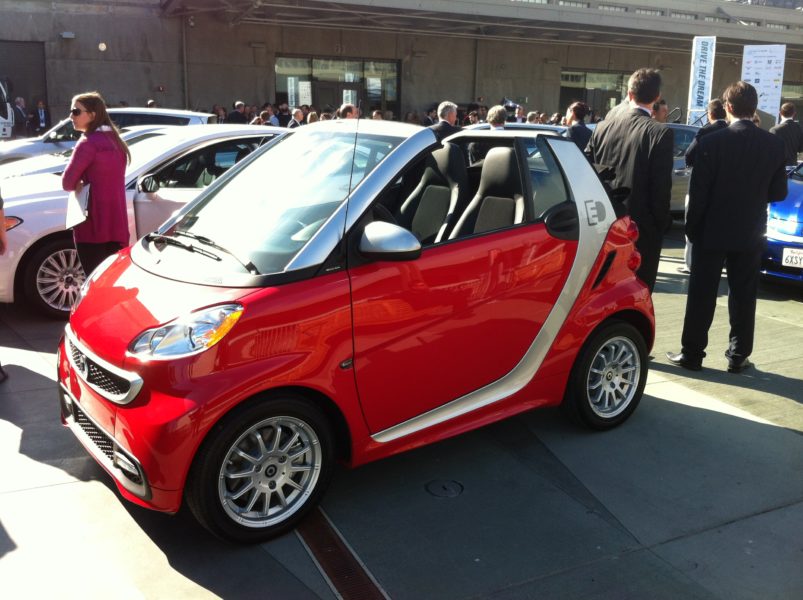Thinking about buying an electric vehicle, but worried about where to plug-in? Trying to maximize the electric miles you drive with your plug-in hybrid? How about plugging-in while you work? Well, there’s good news for you — at least in California

California is committing to electric vehicles
California has been leading the way in getting electric vehicles (EVs) on the road — supported by policies like the state’s Zero Emission Vehicle program, consumer incentives, as well as enthusiastic consumers. On Monday, California’s Governor Brown appeared at the “Drive the Dream” event hosted by the California Plug-in Vehicle Collaborative. The event targeted the next frontier in moving more consumers into the plug-in vehicle market — workplace charging. Brown was joined by representatives from dozens of companies making new commitments to plug-in vehicles and expanding opportunities for employees to plug-in. Noting the more than dozen electric vehicle models at the event from major manufactures and the household names of the companies, Brown said:
This is not alternative any more. BMW, Tesla, Honda, GM: This is impressive. Walgreens, Coke: This is mainstream America promoting electric vehicles.
Reducing barriers to EV ownership, like having convenient access to charging, are important for keeping up momentum in this early market. Workplace charging represents the best opportunity to recharge electric vehicles outside the home since cars are sitting parked for long periods of time. Having the ability to plug-in at work would extend the daily range of battery electric vehicles, while providing owners of plug-in hybrids with a convenient recharge option to get more electric miles during the commute. An 8-hour day at the office means that even a standard outlet can put enough juice in the batteries for about 30-40 miles of driving, with about 4-5 miles of range per hour of charging. But company parking spaces rarely have convenient access to standard outlets, let alone faster EV charging equipment.
A cleaner, more electric future

In addition to the workplace charging commitments by companies, Governor Brown also announced a commitment of his own, indicating he will be signing two bills that are headed to his desk. One bill (Assembly Bill 8, Perea) extends to 2024 state incentive programs that were set to expire. The programs, funded from existing vehicle license fees and other sources, will provide more than an estimated $2 billion in funding to invest in alternative fuels and clean vehicle technology, including plug-in vehicle technology and infrastructure. The other bill (Senate Bill 359, Corbett) provides additional funds to the successful rebate programs for plug-in passenger cars, currently up to $2,500 per vehicle, and advanced technology heavy-duty trucks — both of which were facing funding shortfalls in the coming year.
The long-term success of electric cars will require continued investment and commitment from automakers, government, businesses, and consumers alike. Commitments made to workplace charging by California businesses on Monday, and continued support for incentives by the legislature and Governor, will help maintain the state’s leadership on electric cars.
